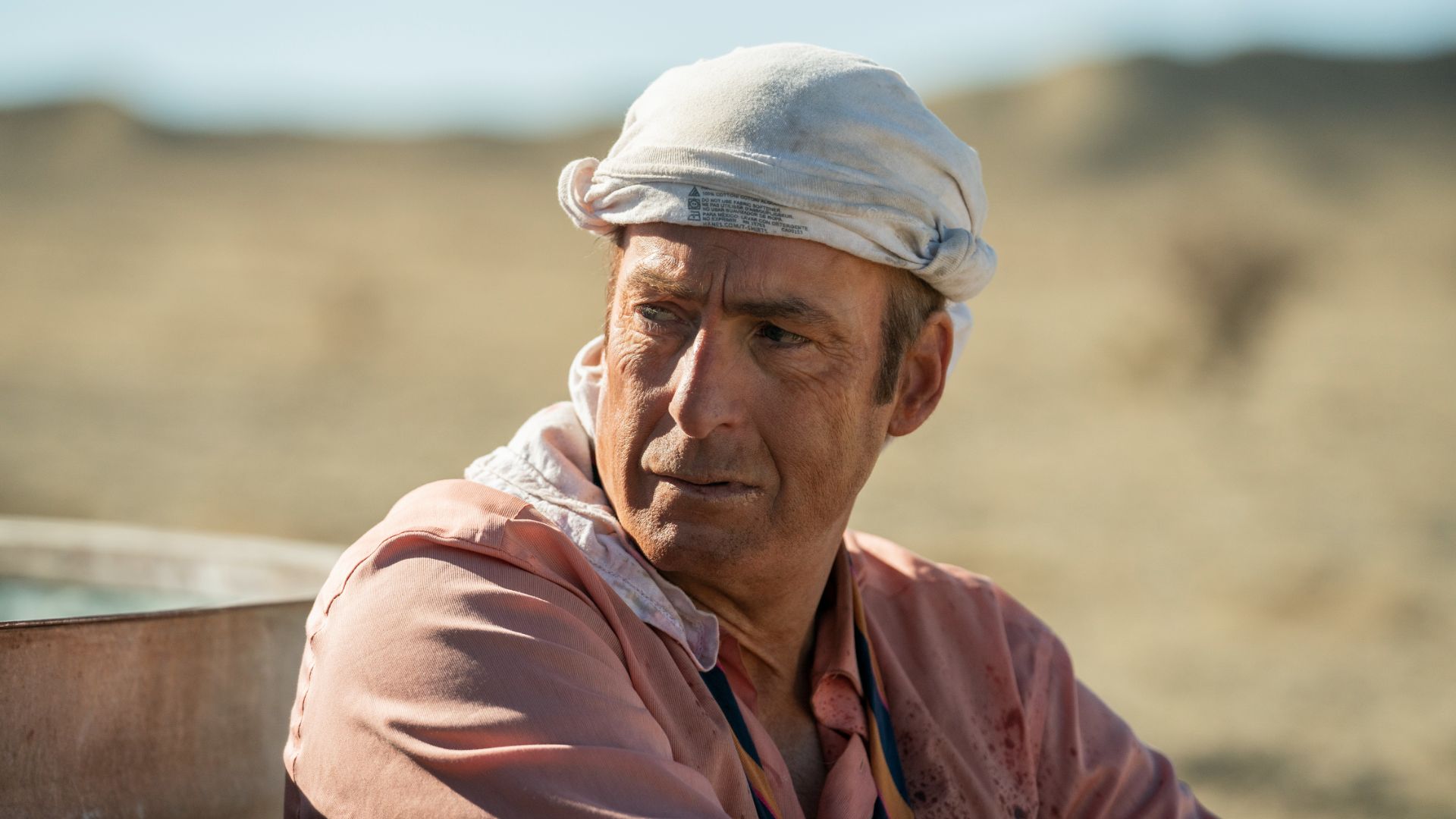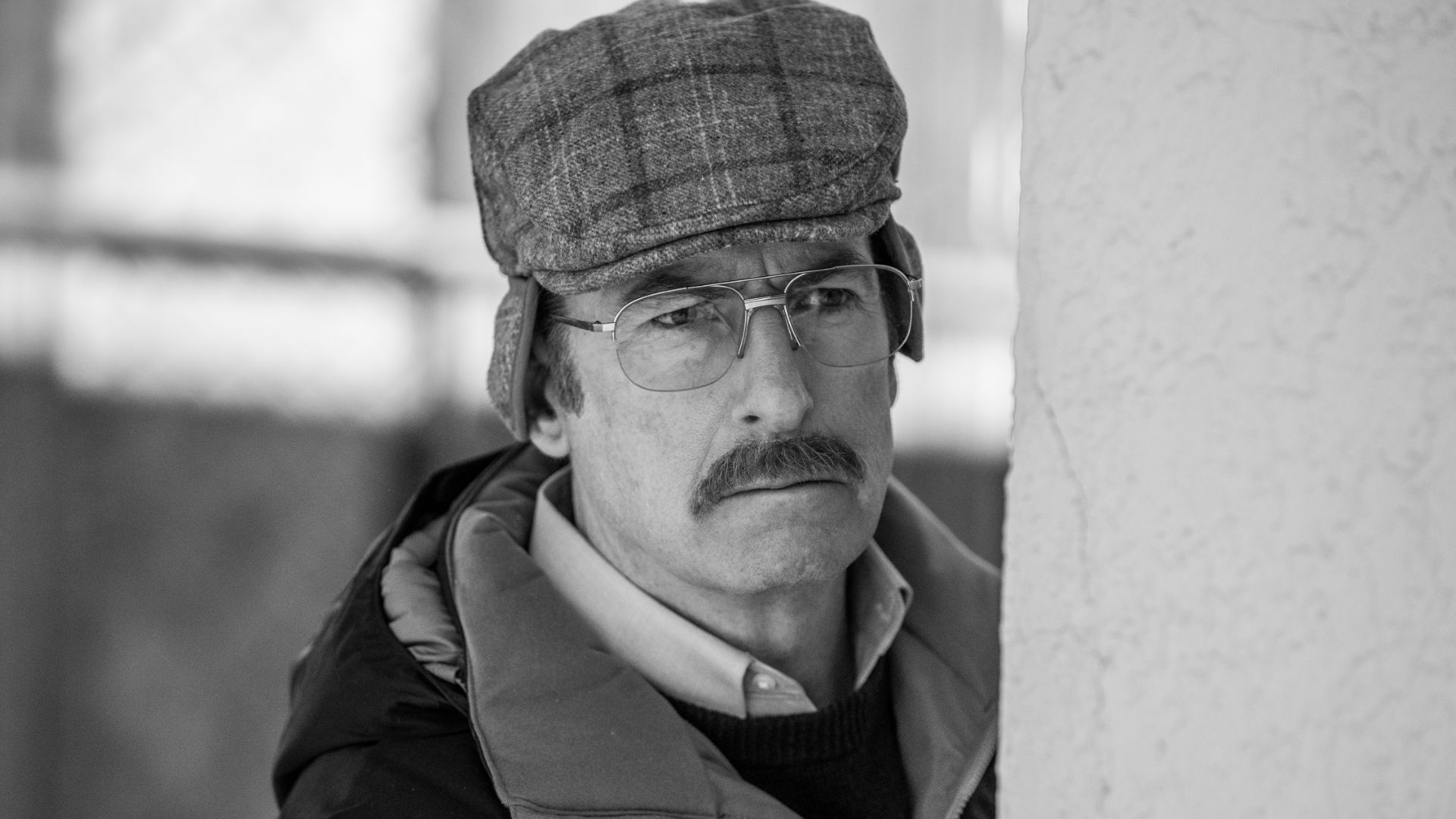How Better Call Saul avoided TV's history of disappointing finales – and made Breaking Bad even better
Better Call Saul went against expectations to deliver a quiet epilogue to two of television's all-time greats

The Sopranos had its fade to black. Lost irritated its audience with a divisive finale. Better Call Saul had… well, we'll get there. Point is, even the most beloved shows can be forever tainted by a bad closing chapter – no matter the quality of what came before.
The Better Call Saul finale, mercifully, did not fall into that trap. Where Breaking Bad neatly wrapped up Walter White's rise and fall in explosive fashion, its spin-off took 14 years of knotty, character-driven material and opted for a quieter goodbye that was worlds away from the bombs-and-bombast of the series that came before. And it made both shows all the better for it.
Jimmy's day in court

"Where do you see this ending?" hapless defense lawyer Bill Oakley asks his new client, one Saul Goodman (nee Jimmy McGill) before he sets his master plan in place. Given what came before – the shootouts, the deaths, the poisonings – you could be forgiven for thinking Better Call Saul co-creators Peter Gould and Vince Gilligan would want to up the ante on their way out. They chose not to. Instead, Saul gets his own restrained victory lap. His brother Chuck would be proud with how he managed to get his rap sheet – totalling 190 years – down to a lean seven-and-a-half years with good behavior.
But Saul wasn't done there. The shiny-suited lawyer managed to get his own day in court, finally shedding the skin of the perma-smirking Saul Goodman to become Jimmy McGill once more. He confesses to his crimes, exonerates Kim, and even finds time to apologize for what he did to his brother – a crucial little button given how much the show has wandered away from that key relationship since Chuck's death.
With his conscience clear, Saul, accompanied by a gaggling fanbase of chanting cons, is hauled off to ADX Montrose (AKA the 'Alcatraz of the Rockies') to spend the rest of his life. It's not a triumphant finale – it never could be – but it's a small personal win for a man who finally feels comfortable in his own skin, and is now unburdened from all his past transgressions. It's about as close to a happy ending as it gets for Saul Goodman.
But the last cigarette that Kim and Saul share (a mirror of their smoking break during the pilot) is an additional moment of heartbreak, one that subverts the medium's usual propensity for a Big Moment in its concluding episode. Many finales end with long speeches, shoehorned-in goodbyes, or wheezing exposition to ensure there are no loose ends left to tie up. The driving dynamic behind Better Call Saul opts for the path less taken, ending in silence, bar a few quick finger guns from Saul.
Kim's actor Rhea Seehorn has already told Entertainment Weekly that she filmed an alternate take on the scene, one where she replied in turn with finger guns of her own. What we got was altogether more powerful. The quiet bond remains unbroken, but Saul's slippery influence over her life is gone. The guns are back in the holster for good.
Bringing all the latest movie news, features, and reviews to your inbox
Kim, then, must now pay for her sins in her own unique way: with a civil suit hanging over her head and a lifetime spent in a Floridian purgatory shackled to a vanilla husband, all while being incapable of making the most basic of decisions. Her pro bono law work may offer some solace, but it's an ending that – like El Camino – feels far more mature than the 'everyone dies' ending in Breaking Bad. Life, amid all the sadness and melancholy, goes on. As finales go, it's less celebration and more continuation: a brave, bold creative choice that paradoxically ends this part of the story in satisfying fashion without laying on the fan service too thick.
On its own merits, 'Saul Gone' was a fitting farewell to Albuquerque's motley crew of shady lawyers, drug kingpins, and cartel psychopaths. Yet, there's another side to the story.
The one who knocked

The greatest trick the Better Call Saul finale – and its closing stretch of black-and-white episodes – pulled was to turn the show into a Breaking Bad epilogue. In truth, Better Call Saul 'ended' when Howard Hamlin's body hit the floor seven episodes back. Everything since then has been a struggle for Saul/Jimmy to reconcile his two personas, his past – and any possible future he can salvage. That, inevitably, drew in a few familiar faces.
Where Walt and Jesse's previous Better Call Saul cameos felt superfluous, the pair of scenes in the finale with Walt and Mike each add an extra layer on top of their iconic portrayals that will improve any future Breaking Bad rewatch. Each is met with Saul's thought experiment: if you had a time machine, where would you go?
Mike belies his gruff, guarded nature and answers: first the date of his son's death but, then, pulling further back to the moment he took his first bribe – which led to his path of death and destruction. Then – perhaps mirroring the creators' future intentions to revisit this world – he would go forward five or 10 years to check in on his loved ones. Mike may be the fixer but, deep down, he's a family man with a good heart. Better Call Saul remembers this – and finds space for the Breaking Bad-verse's old soul to depart some wisdom before the fate that inevitably awaits him years down the line at Walter White's hand.
Walt's interlude is, similarly, a perfect goodbye for the character. We find the teacher-turned-Heisenberg caught in an escape with Saul at some point around Breaking Bad's 'Granite State' episode. Unlike Mike, Walt answers with incredulity – he has regrets, but won't dance around them with the framing device of a hypothetical time machine. He then bursts into a stream of consciousness that's equal parts anger and arrogance, proof enough that he's always been a bitter, twisted man.
Saul, no stranger to colorful characters himself, realizes he can't contain Heisenberg – and never should have tried. Walter White is a wrecking ball; a blunt instrument and a whirlwind of chaos that will eventually destroy everything that gravitates towards his orbit. Better Call Saul's parting shot at Walt – and the odd hero worship fandom around his character – is that he always was the villain of the piece, not someone who should be celebrated.
And now we can breathe. Better Call Saul stuck the landing – and then some. In a television landscape littered with last-minute letdowns and faltering finales, one lawyer stands alone as the incredible exception. It's an all-timer of a finale that stamps the show's place in the Mount Rushmore of prestige dramas – and helps elevate a series many call the best of all time. Not bad for a mailroom clerk.
Want more from Slippin' Jimmy? Here's how 'Bagman' became an episode that rivalled Breaking Bad's very best. If you need to fill the Saul-shaped hole in your life, here are some of the new TV shows you should be looking out for in the next 12 months.
I'm the Senior Entertainment Writer here at GamesRadar+, focusing on news, features, and interviews with some of the biggest names in film and TV. On-site, you'll find me marveling at Marvel and providing analysis and room temperature takes on the newest films, Star Wars and, of course, anime. Outside of GR, I love getting lost in a good 100-hour JRPG, Warzone, and kicking back on the (virtual) field with Football Manager. My work has also been featured in OPM, FourFourTwo, and Game Revolution.



